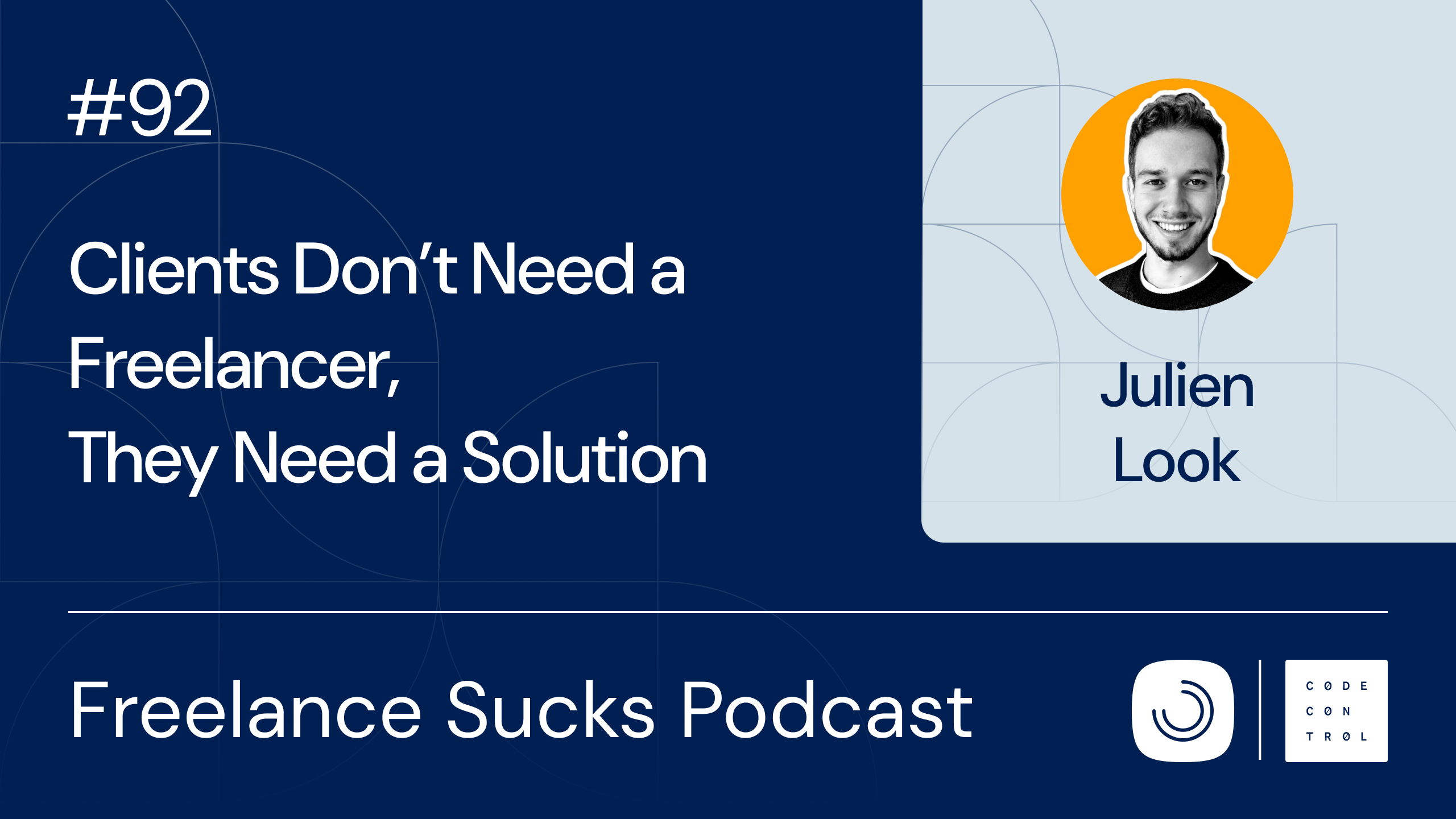When people think of freelancing, they imagine freedom, flexibility, and doing what you love. But behind the scenes, freelancers are managing a thousand moving parts—from client work and sales to self-discipline and burnout.
In this episode, we speak with Julien Look, a freelance software engineer with over 5 years of experience, who has recently founded Look Beyond Solutions, where he provides innovative digital solutions for a smarter future 🤩
From this episode, you'll learn:
✅ How to sell your value, not just your time.
✅ Why structure matters for you just as much as for your clients.
✅ How to manage low-energy phases without losing momentum.
✅ What to consider before going freelance full-time.
✅ What most freelancers wish they knew at the start.
Watch now and take control of your freelance journey! 🚀
🎧 Or listen to it here on Spotify
The hidden work behind freelancing
“Being a freelancer is challenging because you’re not just doing the work—you’re running the whole business.”
Most freelancers start because they love their craft. But once you're in it, you realize you're also a salesperson, marketer, strategist, project manager, and accountant.
For our guest, the biggest struggle was sales. As an introvert, he found it hard to close deals or create urgency in conversations. Rather than pushing people, he started leading with value—sharing ideas, solutions, and insights up front to build trust.
From pitching to proposals: why selling value works Better
“I’m not great at selling—but I’m great at solving problems. So I use that.”
One major shift in his freelance journey was moving from informal chats to structured proposals. He now outlines:
-
What he can help with.
-
How he would approach the solution.
-
A clear roadmap with pricing and deliverables.
-
What’s in scope and what’s not.
This clarity gives clients peace of mind—and it protects him from blurred expectations or scope creep later.
Managing time when everything feels important
“When I have lots of client work, I fall behind on marketing. When I don’t, I worry I’m losing relevance.”
One of the toughest parts of freelancing is balancing all the different roles. When you're busy, you neglect visibility. When you're free, you feel pressure to market, pitch, and upskill.
It’s easy to feel pulled in a hundred directions—and this inconsistency can be mentally exhausting. That’s why discipline, routine, and energy management are just as important as technical skills.
When networking feels like a drain
“If I don’t click with someone, it drains my energy. Not all conversations feel worth it.”
While networking is critical for freelancers, it isn’t always energizing—especially for introverts. Random conversations can be unproductive and exhausting, which is why he’s learned to be selective and strategic with his time.
The solution? Find your balance. Prioritize deep work when it matters, and choose networking opportunities that align with your goals and energy levels.
Advice for starting your freelance journey
Thinking about going freelance? Here are three things our guest recommends:
1. Start gradually
Don’t quit your job immediately. Ask to reduce hours or use weekends to test the waters.
2. Validate your idea
Don’t assume people want what you’re offering. Talk to them, understand their needs, and shape your service around real pain points.
3. Structure your offer early
Even a simple document outlining what you do, how you do it, and how much it costs can set you apart from most freelancers.
What he would’ve done differently
“I would’ve started by asking what people need—not by building something I thought was cool.”
Too often, freelancers build services or products based on personal interest. Instead, he recommends starting with the client’s pain point, and designing your offer around solving it. The technical work can come later.
TL;DR
-
Freelancing means managing your own business—not just your craft.
-
Selling value, not hours, helps clients see the impact of your work.
-
Structure helps protect your time, energy, and sanity.
-
Freelance success requires discipline—especially during slow periods.
-
Start slow, talk to people, and build something that solves real problems.
5 quotes to remember
1️⃣ “Freelancing isn’t just about doing what you love—it’s about handling everything else, too.”
2️⃣ “Clients want results, not hours. Give them clarity, not confusion.”
3️⃣ “Discipline during quiet times is what sets thriving freelancers apart.”
4️⃣ “If you build something without validating the need, you’re gambling with your time.”
5️⃣ “Structure isn’t optional—it’s what keeps both sides sane.”





